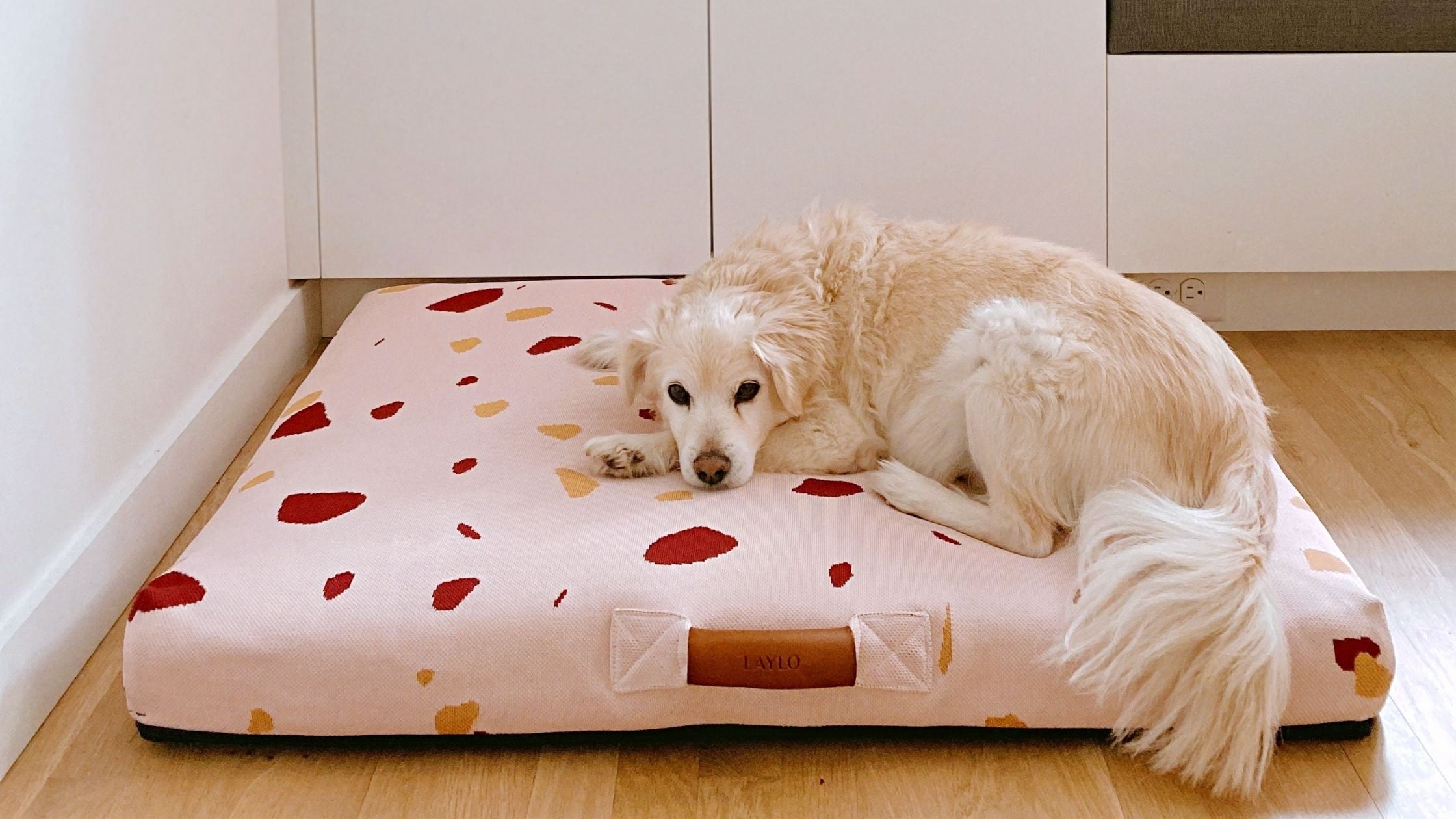Dogs may chew their beds due to boredom, anxiety, lack of exercise, or separation anxiety. Dogs occasionally chew their beds because of various factors including boredom, anxiety, and lack of exercise.
This behavior can be a way for them to alleviate stress and anxiety. Additionally, dogs experiencing separation anxiety may resort to bed chewing as a coping mechanism. Understanding the reasons behind this behavior is essential in addressing the issue effectively.
Providing proper mental and physical stimulation, along with addressing any underlying anxieties, can help prevent destructive chewing and create a more comfortable environment for your pet. We will explore the common reasons why dogs chew their beds and provide valuable insights on preventing this behavior through practical methods and solutions.
Reasons Behind Bed Chewing
Dogs are known to exhibit various behaviors, and one common habit that many dog owners may encounter is bed chewing. This behavior can be concerning and frustrating, but understanding the reasons behind it can help in finding effective solutions.
Natural Instincts
Dogs have natural instincts derived from their wild ancestors. Chewing serves various purposes for dogs, including maintaining dental health, relieving stress, and alleviating boredom.
Teething Or Dental Issues
Teething or dental problems can lead to bed chewing in dogs. Just like human babies, puppies go through a teething phase, and chewing helps soothe their gums. Furthermore, dental issues such as tooth pain or discomfort can also drive dogs to chew on various objects, including their beds.
Boredom And Anxiety
Boredom and anxiety are significant factors that contribute to bed chewing. Dogs may resort to chewing as a way to alleviate stress and seek stimulation. Lack of physical and mental stimulation can lead to boredom, while separation anxiety can also trigger destructive chewing behavior in dogs.
Impact On Dogs And Solutions
When dogs chew their beds, it can have several impacts on their health and behavior. It’s important to understand the potential risks and find effective solutions to address this issue.
Health Risks Of Ingesting Bed Material
Dogs that ingest bed material can suffer from various health risks, including gastrointestinal blockages, choking hazards, or poisoning from toxic chemicals present in the bedding. It’s crucial to address this behavior to prevent potential health complications.
Behavioral Modification Techniques
To address the root cause of bed chewing, implementing behavioral modification techniques is essential. This may include identifying and eliminating stressors, providing adequate mental and physical stimulation, and using synthetic dog pheromone products to reduce anxiety and stress.
Deterrents And Training Aids
To deter dogs from chewing their beds, utilizing training aids and deterrents can be effective. This may involve using bitter-tasting sprays, leaving on a television or radio to provide a calming environment when the owner is away, and seeking professional advice for more severe cases.
It’s crucial to address bed chewing behavior promptly to ensure the well-being of dogs and create a safe and comfortable environment for them
Addressing Behavioral Triggers
Dogs chewing their beds can be a frustrating behavior for pet owners to handle. However, understanding the underlying triggers that lead to this behavior can help in effectively addressing and managing it. Identifying stressors and providing mental and physical stimulation are crucial steps in addressing the behavioral triggers that cause dogs to chew their beds.
Identifying Stressors
Identifying and eliminating stressors that trigger destructive bed chewing is essential. Stressors can vary from physical discomfort, separation anxiety, lack of mental stimulation, or changes in the environment. It’s important to observe your dog’s behavior to pinpoint potential stressors and take necessary steps to address them.
Providing Mental And Physical Stimulation
Ensuring that your dog receives adequate mental and physical stimulation is vital in preventing bed chewing behavior. Engage your dog in regular exercise, interactive playtime, and provide them with stimulating toys to divert their attention from destructive behaviors. Additionally, offering mental enrichment activities such as food puzzles and training exercises can help in keeping your dog mentally engaged and less likely to resort to destructive habits like bed chewing.

Credit: www.laylopets.com
Seek Professional Help
When your dog’s bed chewing behavior becomes a persistent issue, seeking professional help can provide effective solutions. Whether the behavior stems from anxiety, stress, or other underlying factors, consulting with a behavioral specialist and understanding the role of canine pheromones can aid in addressing and managing this challenging behavior.
Behavioral Specialist Consultation
A behavioral specialist consultation involves a thorough assessment of your dog’s behavior and the underlying reasons for bed chewing. The specialist will develop a customized behavior modification plan tailored to your dog’s specific needs. Implementing professional guidance can significantly reduce the frequency of bed chewing and alleviate related stress for both you and your dog.
Role Of Canine Pheromones
Canine pheromones play a crucial role in addressing behavioral issues such as bed chewing. These synthetic pheromone products emit calming signals that help reduce anxiety and stress in dogs, ultimately diminishing the urge to chew on their beds. Introducing pheromone-based products in your dog’s environment can aid in promoting a sense of comfort and security, effectively curbing destructive behaviors.
Frequently Asked Questions Of Why Do Dogs Chew Their Beds
How Do I Stop My Dog From Chewing His Bed?
To stop your dog from chewing his bed, identify and eliminate stressors, use synthetic dog pheromones, leave on a television or radio, and consult a professional for help. Insufficient walks, lack of stimulation or training, and separation anxiety may cause destructive chewing.
Redirect the behavior with appropriate toys and attention.
Why Does My Dog Keep Destroying His Bed?
Dogs may chew their beds due to stress, anxiety, boredom, or lack of stimulation. To prevent this, identify stress triggers and use synthetic pheromones. Consult a professional for personalized advice. Regular walks, toys, and training can also help. Be sure to provide enough attention and comfort for your dog.
Why Has My Dog Started Chewing My Bedding?
Dogs chew bedding due to stress, anxiety, or boredom. Address underlying issues and use deterrent sprays to prevent chewing. Seek professional advice if needed.
Why Is My Dog Mouthing His Bed?
Dogs may mouth or chew their beds due to anxiety or stress. It could also be out of boredom or as a reaction to an itch. Providing pheromone products or engaging them with toys can help alleviate this behavior. Consulting a professional can also offer solutions.
Conclusion
Understanding the reasons behind your dog’s bed chewing is crucial in finding a solution. It could stem from various factors such as stress, lack of stimulation, or separation anxiety. By addressing these issues and providing appropriate toys and attention, you can effectively prevent your dog from destroying their bed.
For further guidance, consult a professional for personalized advice.


